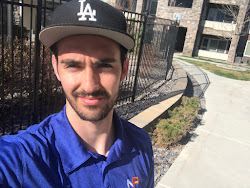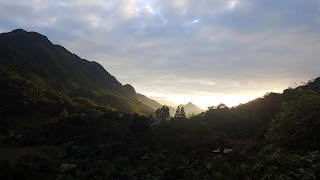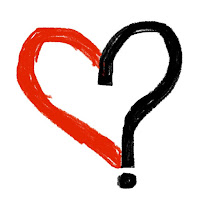A personal essay by Ryan Hallstrom
O give us help against the adversary, for deliverance by man is in vain. -Psalm 60:11
“Why I am so lucky?” This question pops into my head every few weeks. I haven’t faced the kinds of monumental life challenges that confront so many people across the globe. I don’t understand what it means to go hungry, to struggle with crushing mental or physical illness, or to have a family that’s abandoned me. While I’ve certainly overcome challenges in my own life, my triumphs often seem almost trivial when I think about what others have overcome. 
With this realization, ever since I was a young boy I’ve tried to help lighten the burdens of anyone I notice that is in need. However, time and time again my efforts to make a difference in the lives of others have seemed woefully inadequate.
It was not until I needed saving myself that I realized that true deliverance can only come from one source.
________________________________
Nelson
The first day it snowed in the fall of 2012, I got home from school and hurried outside. I wanted to see how the woods had changed since yesterday. I was excited to see everything dusted with snow. Before I could leave, Mom made me put on an orange vest and hat because it was hunting season. I went past the junkyard to my “secret” overlook spot. After taking in the beautiful "postcard view" with Seneca Lake in the distance, I saw a group of Canada geese fly away. One goose, however, couldn’t fly. I caught up to it and noticed that it was injured. I picked it up in my arms.
Luckily my sister Emily lived in town and she was a vet tech at Cornell University. I could take the goose home and she would know what to do. I called Mom on my cell phone (the one she demanded I carry because I was alone in the woods everyday) and told her to come pick me up at a nearby road.
I needed to get this goose warm and safe as soon as possible!
After a minute, the goose went limp in my arms. It was probably scared out of its mind. There I was, wearing a hunter’s vest, without a hunting license, carrying what appeared to be a dead bird. I didn’t want anyone to see me.
I was eventually able to find Mom and put the goose in a big cardboard box she brought. The goose, which I had already named Nelson, moved around for a few minutes to get comfortable and then laid down quietly in the box.
After a few hours, Emily was able to come and take a look at sick Nelson. When I opened the box, I was glad to see that he was sleeping. Emily looked down and then looked up and me.
“He’s not sleeping Ryan, he’s dead.”
The box with the carefully laid blanket at the bottom was just too small for the large goose. When Nelson moved around he must have broken his neck. Poor Nelson. I wonder if he knew was just trying to help when his world went dark.
Son of Job
In a Russian "dacha town" --a group of small wooden houses-- on the outskirts of St. Petersburg, my missionary companion and I tried to locate members of our church from the directory who hadn’t been contacted in years. Although it was only late afternoon, it might as well have been midnight with how dark it was on the street.
As we approached one of the addresses on our list, I was certain that the house was abandoned. Unlike all the other houses on the block, there weren’t any footsteps leading into the yard and a large snow drift blocked the front door.
We knocked anyway.
After what seemed like five minutes, the door opened, and a dark figure beckoned us to come inside. The house was pitch dark. We stumbled behind him as he led us into his kitchen. The small flame from one of the stove burners was the only source of heat and light in the house.
The man said that when we knocked, he was reading. He gestured towards an ancient, dirty, coverless book that lay on the windowsill. I wondered how he had enough light to read, besides the tiny flame on the stove, the only light in the room came from the pale beams of moonlight that occasionally appeared through the clouds.
As we sat shivering with him in his small, dark home, he told us his story. Months before, a group of young men on the street asked him for a cigarette. He told them that he didn’t smoke but they didn’t believe him and almost killed him in a brutal attack. After laying for weeks in the hospital, he returned home only to discover that his wife had left him and completely emptied the house. So, we talked with him about hope. As we went to leave, we said we would come back next week.
He asked, "How much does bread cost? I can't even remember how much bread costs anymore."
We told him.
He paused and then asked, "When you come next time could you bring me some bread, even just half a loaf maybe?”
We left, but several minutes later we returned with a few loaves. He quietly said, "Thank you" and shut the door. What a cruel irony that this quiet man, whose name in Russian means “son of Job,” was completely destitute.
Trapped
So there I was: standing in an elevator in a Soviet apartment building, going with my companion to the top floor to start knocking on doors, when "thud!" the elevator stopped.
Between the sixth and seventh floor on building five on "Metalworkers Street," we were completely and utterly stuck. None of the buttons worked, including the "help button," and the information sticker was too torn to read. My companion called several people who lived in town to try to find out what to do.
Believing that we had just minutes until we would run out of oxygen and slowly start fading, I knew I had to think fast. I reached into my back pocket for my sturdy pocketknife. I flipped it open and immediately began working to pry it into the small gap between the two closed doors. After moving it back and forth, the first layer of doors opened ever so slightly.
"I did it! We're free!"
But I didn't really, it wasn't enough. I could see the door's inner mechanics. Despite my efforts, I could not manage to open the second part of the doors! I resigned myself to an awful fate--suffocating in a Soviet elevator.
Minutes passed... Awful minutes spent just waiting for my mind to slip out of consciousness from lack of precious oxygen.
"Wait, what is that?" I said. It was a voice saying, “Is there someone in here?"
"Yes! Please help us!"
After another minute or two, we heard a man say, "Stand back!" We moved away from the doors and seconds later they opened. The man barked, "Jump on down" so we hopped 2 1/2 feet and thanked the mustachioed mechanic, our rescuer, as we hurried down the stairs and back home.
Passed Over
As I was sitting in church during the ordinance of the sacrament, I thought about the week. I thought about last Monday.
I was prompted several times that morning to do things that didn't seem very important-- take a suit to get dry-cleaned, turn around and go visit a potential investigator in his store, and so on. All things a departure from the plan we'd carefully made the night before.
When my companion and I finally walked to the metro, I wondered, "Why did I feel so strongly to do those things today? Not tomorrow: today?” As I descended deep into the earth on a colossal 20-story escalator, I payed little attention to the intercom announcement of seven closed metro stations due to a "technical issue."
Moments later, still on the escalator, I got my answer. Our district leader called. The sister missionaries heard about a possible terrorist attack in the metro, and they had just told President Childs. Elder Larsen and I reluctantly decided not to get on the metro but went back up the escalator and outside. People were panicking, simultaneously running from a gaping hole in the earth and calling their loved ones.
Only a few stations down the line, dozens of wounded souls lay among the dead, their cries for help echoing in the darkness.
If I wouldn't have followed the promptings to do very simple, everyday things, we could been on the same train as the terrorist’s bombs. It was the same metro line, going the same direction we would have been going-- at (or around) the same time. Even if we wouldn't have been in the same train as the bomb, if we would have gotten to the metro just a few minutes earlier, we would have been stuck underground without cellular reception in a different part of the city.
Instead, safely above ground, we simply called all of the district leaders in our zone and made sure everyone was safe and accounted for. Then, we went home.
After a quiet prayer of thanks for protection on Monday, I thought about this last Thursday, April 6th. To me, April 6th is one of the most important days of the year. I prepared a Passover dinner to celebrate the occasion, Christ's birthday, and the anniversary of the restoration of His Church. My companion and I ate the small pieces of lamb, bitter herbs, and unleavened bread.
Now, as a deacon bearing the bread neared my pew, my attention turned to a father and son sitting in the row ahead of me. The father was a member, who hadn't been to church in twenty years. He sat with his son who had never been to church. I saw the son lean over and whisper something to his dad.
I couldn’t hear what he said, but I didn't have to. I knew what he was asking.
"What is the bread and water for?"
The father pointed and explained.
I could not hold back tears as I thought of the prophecy in Exodus 12. “Your children shall say unto you, What mean ye by this service?" They receive the reply, "It is the sacrifice of the Lord's passover, who passed over the houses of the children of Israel in Egypt" and... "ye shall observe this thing [a holy meal shared by the children of Israel] for an ordinance to thee and to thy sons forever."
Finally, the bread reached my row.
As I ate the crust, I was filled with gratitude to the Lord for passing over me.







































.jpg/1200px-Atacama-7_(26389240332).jpg)








